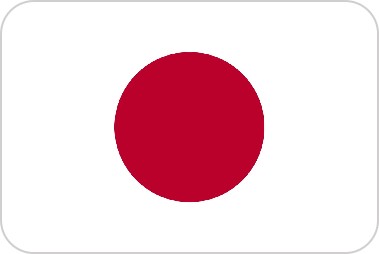Language
In order for foreigners to live and work in Japan, they must obtain a “status of residence” that suits their purpose. There are 29 types of status of residence in Japan, which can be broadly divided into two categories: “work status” and “residence status.” In addition, some work statuses do not allow you to work in principle.
If you want to work in a hotel or inn in Japan, it is important to correctly understand which status of residence you need. You may not be able to work with the wrong status, so be sure to check in advance.
In this article, we will introduce the types of status of residence in Japan. We will also explain the qualifications required to work in the hotel industry, so if you are a foreigner who wants to work in a Japanese hotel, please refer to this article.
目次
What is residence status?

In order for foreigners to work in Japan, they need a “status of residence.” A status of residence determines the jobs and activities that foreigners can do in Japan. To enter Japan, you must tell them “what you are coming to Japan to do” and obtain the appropriate status of residence.
There are various types of status of residence in Japan. The status of residence required varies depending on the type of work.
For example, to work in a hotel, statuses such as “Specified Skills (Accommodation Industry/Food Service Industry)” and “Engineer/Specialist in Humanities/International Services” are often used. With this status of residence, you can work as a full-time employee at the hotel front desk or in a restaurant for a long time.
Also, there are some statuses of residence that you can work and some that you cannot. For example, with “Study Abroad” or “Dependent Stay,” you basically cannot work, but you can work part-time if you obtain permission to engage in activities other than those permitted by your status of residence. However, you are limited to 28 hours per week, and you cannot work as a full-time employee.
Types of Japanese residence status

Here, we will look at what types of residence status are available in Japan.
Employment Eligibility
Visa status that allows you to work in a hotel
| Status of residence | Main activities | Examples |
| Engineer/Specialist in Humanities/International Services | Activities that use what you learned at university or the knowledge and experience you gained working for a company in your own country | Engineers, interpreters, designers, marketers, etc. |
| Specific skills (accommodation and food service) | No. 1: Work in a specific field that requires knowledge and experience No. 2: Work that requires a higher level of skill | Front desk, restaurant service, cooking, etc. |
| Technical intern training | Learning the skills necessary for the job | Technical intern trainee |
Each will be introduced in detail in the next chapter.
Other work qualifications
| Status of residence | Main activities | Examples |
| Diplomacy | People working for diplomatic missions or consular agencies of foreign governments, or their families | Ambassadors, envoys, and their families of foreign governments |
| Official business | People working for foreign governments or international agencies, or their families | Staff members of foreign government embassies or consulates, and their families |
| Professor | Researching or teaching at universities or vocational schools | University professors, etc. |
| Art | Engaging in artistic activities such as music or art for money | Composers, painters, etc. |
| Religion | Teaching or spreading the word about religion | Missionaries, etc. |
| Press | Contracting with foreign media organizations to report on news and report on events | Reporters and cameramen for foreign media organizations |
| Highly-skilled professional | Jobs performed by foreigners with highly specialized knowledge | Researchers, engineers, managers |
| Management and administration | Management and administration of a company | Corporate executives and managers |
| Law・Accounting work | Working in a legal or accounting field that requires special qualifications | Lawyer, Certified Public Accountant, etc. |
| Medical | Working in a medical field that requires special qualifications | Doctor, Nurse, etc. |
| Research | Researching under contract with a country or company | Researcher |
| Education | Teaching foreign languages at elementary or junior high schools | Language teachers at junior and senior high schools, etc. |
| Intra-company transfer | Work for people who are transferred from a foreign company to a branch or company in Japan | Transferees from foreign offices |
| Nursing care | Working in the care of people with care worker qualifications | Care worker, etc. |
| Performance | Showing or letting people listen to plays, musical performances, sports, etc. | Actor, singer, professional athlete, etc. |
| Skills | Work for people with high skills in a specialized field | Cooks of foreign cuisine, sommeliers, etc. |
In principle, a status of residence that does not allow employment
| Status of residence | Main activities | Examples |
| Cultural activities | Learning or researching Japanese culture without receiving payment | Researchers of Japanese culture, etc. |
| Short-term stays | Staying in Japan for a short period of time for sightseeing, visiting family or friends, participating in a conference, etc. | Tourists, conference participants, etc. |
| Study abroad | Studying at a Japanese school or vocational school | University students, vocational school students, etc. |
| Training | Training to learn skills and knowledge necessary for work | Internal trainees |
| Family stays | Spouses or children living in Japan who are supported by someone with work qualifications | Spouses and children of foreigners with work qualifications |
| Specific activities | Engaging in activities specially determined by the Minister of Justice | Working holidays, domestic servants for diplomats, etc. |
The visa statuses introduced here generally do not allow you to work in Japan. However, people with “Student” or “Dependent” visas can work within set hours if they obtain permission to engage in activities other than those permitted under their visa status. You can also work part-time in the hotel industry.
Also, some “designated activities” visas allow you to work under certain conditions, such as on a working holiday or as a housekeeper in a diplomat’s home.
A status of residence with no work restrictions
The status of residence that can be obtained based on one’s position or status does not have any restrictions on the type of job or work content, so they can work in any job just like Japanese people.
- Permanent resident: A person who has been granted permission to live in Japan for life
- Spouse of a Japanese national: A person married to a Japanese national and their children
- Spouse of a permanent resident: A person married to a permanent resident and their children
- Long-term resident: A person who has been granted permission to live in Japan by the Minister of Justice for special reasons
Status of residence required to work in a Japanese hotel

To work in a Japanese hotel or inn, you must obtain a residence status that suits your job. The type of work you can do and how to obtain it will vary depending on the residence status you obtain. Think about what kind of work you want to do and choose a residence status that suits it.
Here we will introduce the four main residence statuses that can be used to work in the hotel industry.
Specific skills “accommodation industry”
This is a status of residence that allows you to work in hotels and inns, directly dealing with guests staying at the hotels.
Jobs that specific skilled workers in the “accommodation industry” can perform in a hotel
- Front desk duties: Check-in and check-out, etc.
- Customer service duties: Guiding guests around the building, handling inquiries, etc.
- Planning and PR: Creating information leaflets about the building, posting information on the website and social media, etc.
- Restaurant service: Serving food, taking orders, etc.
In addition to this, although it cannot be the main job, you can also be in charge of bed making and cleaning.
To obtain the specific skill “accommodation industry” qualification, you must pass a skills evaluation test. Since you are also required to be able to have basic conversations in Japanese, you must also pass the Japanese Language Proficiency Test (JLPT) N4 or above or the Japan Foundation Basic Japanese Test.
In addition, if you meet the conditions, you will be able to transition to specific skills No. 2. Specified skills No. 2 is a residence status for foreigners with higher skills in the same field. If you transition to No. 2, your period of stay will be indefinite and you will be able to bring your family to Japan. To transition to No. 2, you must gain more than two years of practical experience and pass a skills evaluation test.
Specific skills “food service industry”
This is a status of residence for working in a restaurant or cafe in a hotel, and allows you to handle all tasks related to the food service industry. Unlike the accommodation industry, you cannot work at the front desk, hotel planning, or public relations. This is a status of residence for people who want to work as hall staff or cooking staff in a restaurant.
Jobs that specific skilled workers in the food service industry can handle in hotels
- Food and drink preparation: preparing ingredients, cooking with heat, cooking with fire, plating, etc.
- Customer service: showing customers to their seats, serving food, setting the table, etc.
- Store management: planning and developing menus, managing staff shifts, replenishing and ordering ingredients, etc.
Like the accommodation industry, the specific skill “food service industry” can be acquired by passing a skills assessment test and a Japanese language test (N4 or higher) or the Japan Foundation Basic Japanese Test, and if the conditions are met, it can be transferred to No. 2. To transfer to No. 2, in addition to two years of experience in supervising and instructing multiple staff members and experience in assisting in store operations, it is necessary to pass a skills assessment test and the Japanese Language Proficiency Test (N3 or higher).
Engineer/Specialist in Humanities/International Services
“Engineer/Specialist in Humanities/International Services” is a status of residence required for work that utilizes specialized knowledge and skills, and is collectively referred to as “gijinkoku.”
What Gijinkoku can do at a hotel
- Front desk work
- Interpretation
- Planning, marketing
- Administration, sales
To obtain this qualification, you must have graduated from a university overseas or in Japan, or from a vocational school in Japan. Even if you have not graduated from university, you can apply if you have more than 10 years of work experience in the same field.
Technical internship
The Technical Intern Training Program is a system that allows people to learn the skills and knowledge necessary for a particular field while working in Japan. During the internship period, you will be in charge of cleaning rooms, making beds, serving in restaurants, etc., and will learn the skills and knowledge necessary for the hospitality industry. First, you will attend a course and gradually gain experience while learning the job.
Tasks that technical interns can handle at hotels
- Picking up and dropping off guests
- Taking care of guests during their stay
- Serving food and drinks
- Preparing and cleaning up the venue
- Ensuring safety and hygiene within the hotel
To use this system, you first need to ask a “dispatch agency” in your home country to introduce you to a Japanese hotel as a candidate for a technical intern trainee. After that, if you pass an interview at a Japanese hotel, you can work as a technical intern trainee. By transitioning to Technical Intern Training No. 2, you can receive training for up to three years.
Also, if you successfully complete Technical Intern Training No. 2 and it is recognized that your job type and work content are related to the technical intern training, you can transition to Specified Skills No. 1. Since technical intern training is based on the premise of returning to your home country, transitioning to Specified Skills will allow you to work in Japan for a longer period of time.
Choose the residence status that suits you and work in a hotel!

This time, we introduced what types of residence statuses are available in Japan. There are 29 types of residence statuses in Japan, some of which you can work with and some of which you cannot. To work in a Japanese hotel, you must obtain a “work status” that allows you to work.
If you want to work at the hotel front desk or in a restaurant, you should obtain a “specific skills (accommodation industry/food service industry)” status. If you want to do specialized work such as interpretation or marketing, you should obtain a “Technical/Humanities Specialist/International Services” status. If you want to gain experience as a trainee, you should first obtain a “technical intern training” status. Depending on the status of residence you obtain, the work you can do and the period you can work will change, so choose a status that suits your desired way of working.
At バリプラGlobal, we introduce jobs that specialize in the “accommodation industry” and “food service industry” and provide employment support for foreigners who want to work in Japanese hotels and inns. We have a comprehensive support system in place so that you can work in Japan with peace of mind, including visa applications and immigration procedures. If you are interested, please check out the link below!
「宿泊業」「外食業」に特化した外国人の就職サポート バリプラGlobal
- 26 articlesRecent posts
- ホテルコンシェルジュとはどんな職業?仕事内容や必要なスキルを紹介!【外国人向け】
- ホテルの事務職の仕事内容を紹介!どんなスキルが求められる?【外国人向け】
- Công việc marketing khách sạn bao gồm những gì? Giới thiệu mô tả công việc và mức lương hàng năm cho người nước ngoài!
- Khách sạn có những vị trí quản lý nào?Giới thiệu dễ hiểu về công việc và mức lương dành cho người nước ngoài muốn làm việc tại Nhật Bản
- ホテルのマーケティングは何をする?仕事内容や気になる年収を外国人向けに紹介!
- 7 articlesRecent posts
- Bạn nên trả lời thế nào khi được hỏi về điểm mạnh và điểm yếu trong buổi phỏng vấn? Giải thích dễ hiểu cho người nước ngoài! [Có đáp án mẫu]
- [Dành cho người nước ngoài] Bạn nên mang theo những gì khi đi phỏng vấn khách sạn? Một bản giới thiệu rõ ràng về những vật dụng hữu ích!
- 面接で長所と短所を聞かれたらどう答える?外国人向けに分かりやすく紹介!【回答例付き】
- 【外国人向け】ホテルの面接で必要な持ち物は?あると便利なアイテムも分かりやすく紹介!
- [Dành cho người nước ngoài] Chuẩn bị phỏng vấn xin việc làm trong ngành khách sạn! Những câu hỏi thường gặp và những điểm chính để được tuyển dụng
- 7 articlesRecent posts
- 【Ứng xử qua điện thoại bằng tiếng Nhật】Giới thiệu các phép lịch sự và cụm từ mà người nước ngoài nên biết!
- 【日本語の電話対応】外国人が知っておきたいマナーとフレーズを紹介!
- Giới thiệu những điều cơ bản về cách viết email công việc cho người nước ngoài! [Có câu ví dụ]
- ビジネスメールの基本の書き方を外国人向けに紹介!【例文付き】
- Nghi thức kinh doanh của người Nhật là gì? Những quy tắc và văn hóa cơ bản bạn nên biết trước khi làm việc
- 3 articlesRecent posts
- 7 articlesRecent posts
- Hướng dẫn đi tàu điện Nhật Bản dễ hiểu! Hãy tuân thủ đúng quy tắc khi sử dụng tàu điện [Dành cho người nước ngoài]
- Giới thiệu luật giao thông Nhật Bản! Những điều cần biết để sống an toàn [Dành cho người nước ngoài]
- 日本の電車の乗り方をわかりやすく紹介!マナーを守って利用しよう【外国人向け】
- 日本の交通ルールを紹介!安全に暮らすために知っておきたいこと【外国人向け】
- Nếu người nước ngoài bị mất hộ chiếu ở Nhật Bản thì sao? Một lời giải thích đơn giản về những việc cần làm
- 7 articlesRecent posts
- [Dành cho người nước ngoài] Giới thiệu dễ hiểu về các thuật ngữ kinh doanh thường dùng được viết bằng chữ katakana!
- 【外国人向け】よく使われるカタカナのビジネス用語をわかりやすく紹介!
- Một giới thiệu dễ hiểu về thuật ngữ dịch vụ khách hàng khách sạn dành cho người nước ngoài! Bao gồm các câu ví dụ sẵn sàng sử dụng
- ホテルの接客用語を外国人向けに分かりやすく紹介!すぐに使える例文付き
- Hãy cùng học cách chào hỏi của người Nhật! Từ lời chào cơ bản đến lời chào kinh doanh
- 7 articles
- 21 articles
- 9 articles













